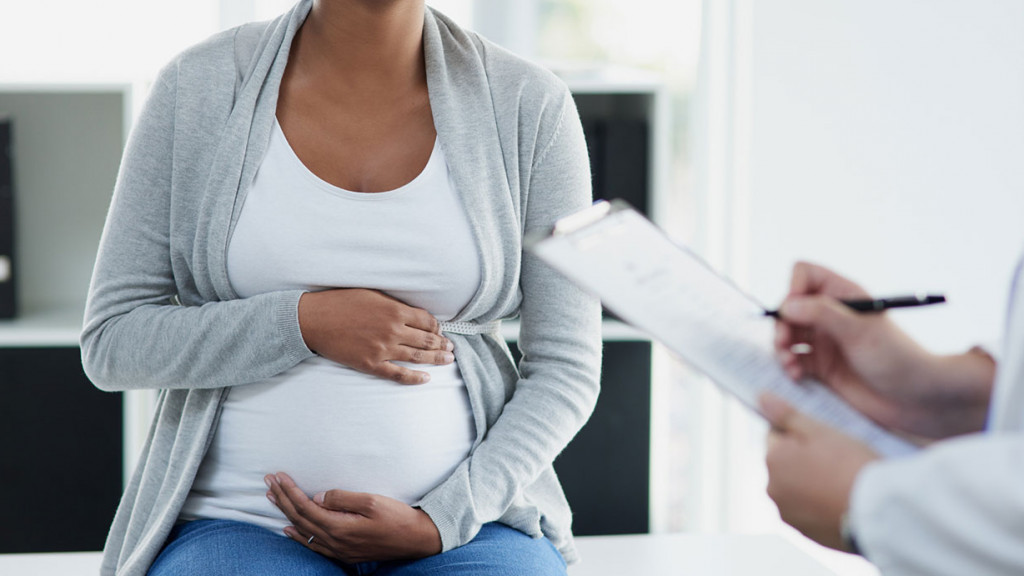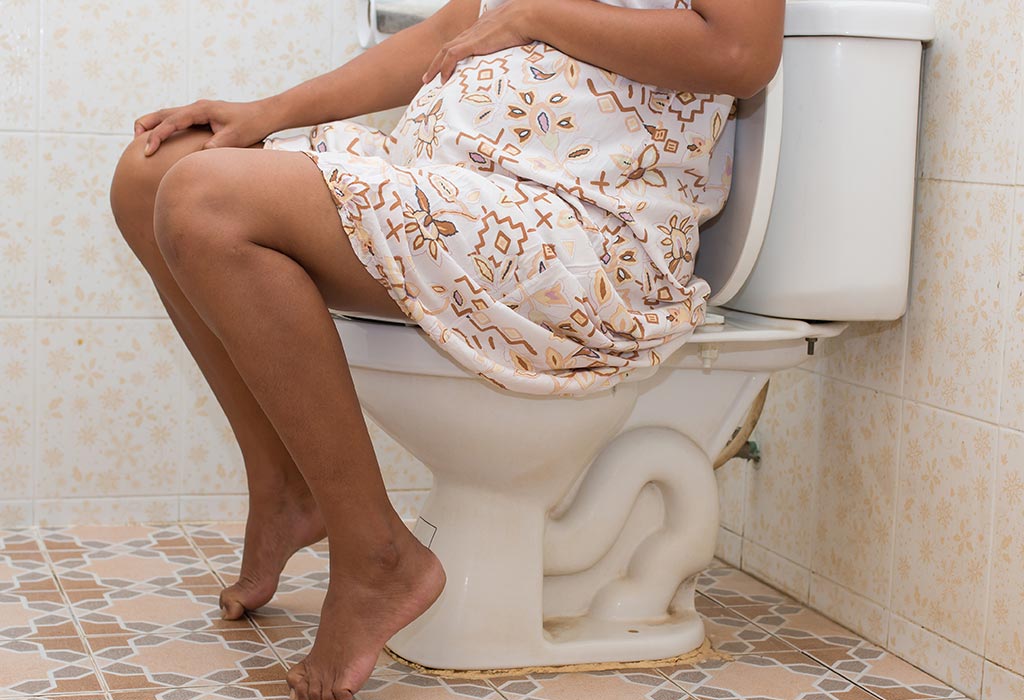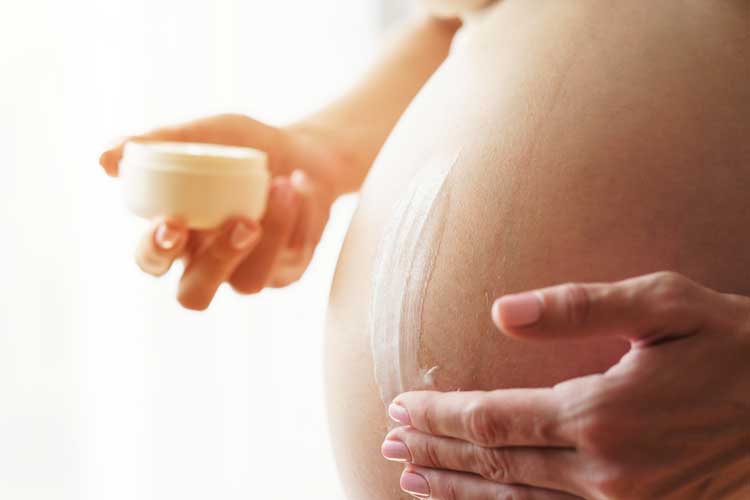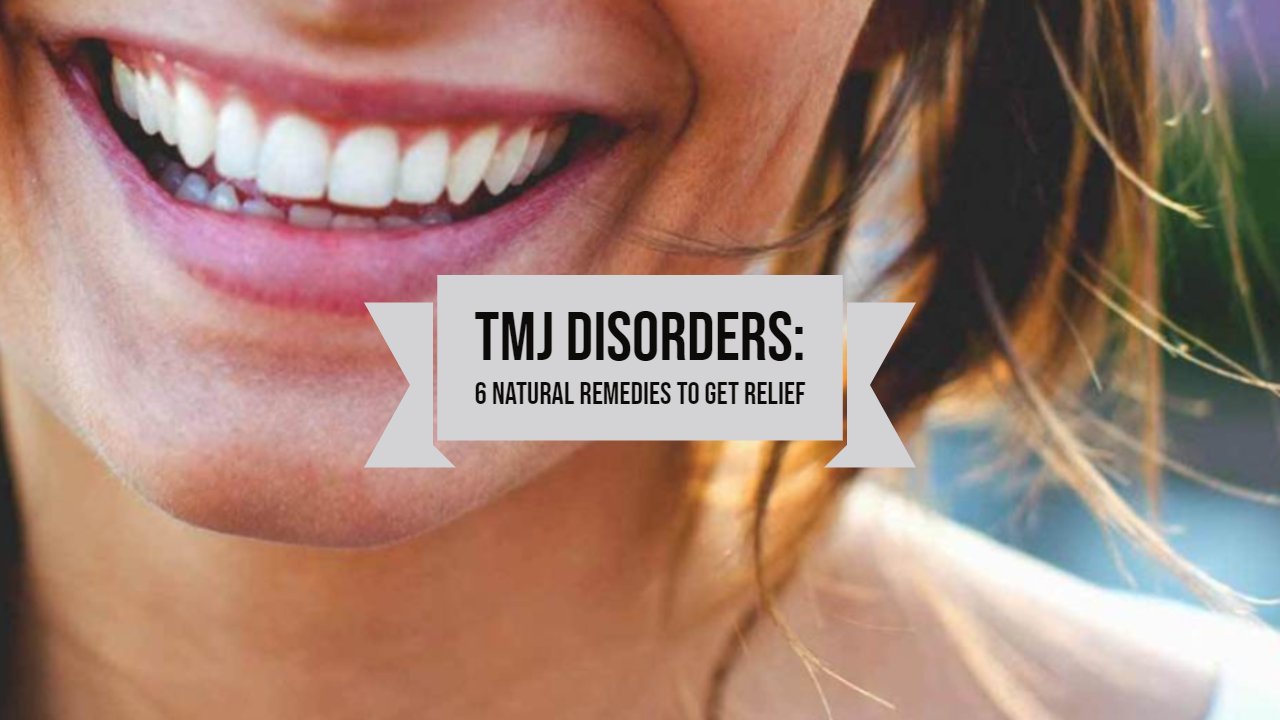In this post, we will tell you about the natural changes during pregnancy with some remedies to overcome discomforts.
The blood flowing through the body

Now during pregnancy, the body creates a number of new blood vessels in order to supply oxygen to the placenta and to the growing baby.
Now the body takes a little bit more time in order to create actual blood cells. So first the volume is increased. This can lead to a drop in blood pressure in the first and early second trimester of pregnancy. Now a drop in blood pressure can be dangerous because it can cause lightheadedness and dizziness especially when you go from sitting to standing.
Additionally, because the body needs more oxygen and there’s a little bit less blood the heart has to work a little bit harder to pump it through the body. This causes an increase in the heart rate. This can make you a little bit more tired. And when you walk things that you could have done before more easily what will cause you to tire out and feel your heart beating a little bit faster.
Here are a few tips and tricks on how to deal with this lightheadedness and fatigue:
- If you feel a little bit dizzy especially after standing up make sure that you relate to it. Don’t ignore this feeling of lightheadedness. Sit down and have a drink of water. Especially if this is early in pregnancy. And coffee is available you can also have a cup of coffee. Caffeine increases your blood pressure and this can be good especially if you’re feeling this lightheadedness and dizziness after standing up.
- The second important tip for you to remember is to stay hydrated. Keep a bottle of water with you at all times and constantly sip it throughout the day. Now I know this makes you go to the bathroom a little bit more but it’s very important to stay hydrated during pregnancy.
- The last tip that I want to give you if you’re feeling lightheadedness dizziness or that your heart’s beating a little bit too fast is to take a break and lay down on your left side, not on your back. Now if you lay down on your back you may be obstructing some of the blood that’s trying to flow blat back to the heart and make the heart work a little bit harder. This is why it’s important to make sure you lay down on your left side and not on your back.
Why is it so hard when you’re pregnant?
Now, while you’re pregnant your body requires more oxygen so naturally you have an instinct to breathe more and deeper breaths.
There are two things that make this a little bit harder:
- The first thing is that the womb grows which is a muscle the uterus is a muscle and that requires muscle especially when the mass increases.
- And second of all especially during contractions, the muscle requires energy which requires oxygen. So especially during contractions the amount of oxygen that your body needs increases.
Breathing can become a little bit harder during pregnancy for two main reasons:
- First of all physically, when you breathe you push down on your diaphragm. But there’s a baby pushing up on the other side. And this can make it feel harder to breathe.
- The second reason is because of the estrogen throwing through your flowing through your body. Now estrogen is one of the hormones that increase during pregnancy. This can cause a little bit of swelling in the tissues, especially in the breathing canal. This can make your or your airways a little bit thinner and this can also increase the feeling of difficulty when you have when you’re breathing.
The main tip that I have to overcome these breathing difficulties: is again to lay down on your left side and help your body return the flow of blood from your lower part of your body back to the heart. This can make your breathing a little bit easier.
Now late in the pregnancy around weeks 36 to 38 you might feel that your breathing gets easier as your baby drops down a little bit. Now, this is great because breathing becomes easier but unfortunately, that baby starts pressing on the bladder.
Anemia – More reasons to feel faint and weak

Anemia is a low hemoglobin count or that’s what we measure when we measure our red blood cells. Now we mentioned previously the volume of our blood increases but it takes time for us to build new red blood cells. So even the volume increases the concentration of red blood cells actually decreases especially early in pregnancy.
One of the other things that happen to our blood at this time is that it can enter a state of Aiguille ability. This means that it’s more likely to create blood clots at different parts of our body. Now some people may have diseases like lupus or Abla that make this even more likely to happen. And if you’re pre-mixed predisposed to have one of these diseases you should be aware of this already.
Some tips and tricks:
- The first tip that I have is to make sure that you keep your blood flowing although you may be tired and tempted to sit around all day it’s very important to get up and go for a walk. Even a very short walk a small walk around the block or even around the house because this creates blood flow in the body and prevents the blood from clotting. It’s important to do this daily for even every couple of hours. Make sure that you get up and go for a short walk.
- The next tip is two very important supplements for women who are pregnant the first are iron supplements and you don’t necessarily have to take an iron supplement as a pill although there are many prenatal vitamins that have iron in them it’s important to maintain a diet that is rather rich in iron. Now if you eat red meat that’s great because this is the best way to increase the amount of iron in our bodies by eating red meat.
- The other supplement that I want to mention is full of acid. Now folic acid plays a number of roles one of them is the building blocks of the cells of our body. So by taking folic acid, you’re also helping your body create more red blood cells. However folic acid also plays a very important role in the development of your baby’s nervous system. There have been a number of studies just showing the benefits of folic acid during pregnancy. So all women are recommended to start folic acid supplements even three months before they’re planning on getting pregnant.
Going to the bathroom, again and again

It’s no secret that women during pregnancy have to go to the bathroom a little bit more or a lot more.
Now, this can be for a number of reasons. Maybe you’re drinking more but the amount of blood in your body is also increased and your kidneys are working overtime to filter that blood and turn it into the urine.
The other obvious reason for going to the bathroom more is that the uterus is pressing on the bladder giving you the feeling that you have to go even if you only have a little bit in the bladder.
Now the problem is when the kidneys work overtime you’re at increased risk for urinary tract infections. The most important thing to know here is that in order to prevent urinary tract infections you need to drink and go to the bathroom frequently. Even though it’s uncomfortable. So even as you’re going to the bathroom frequently and thinking to yourself how bad it is. Just remember that you’re preventing urinary tract infections at that time.
Digestive system

Now, unfortunately, the digestive system takes a bit of a hit during pregnancy and this is for two main reasons:
- The first one being physically the intestines of our body are used to just sitting in our abdomen comfortably but during pregnancy when there’s a growing baby inside of your stomach it pushes all the intestines to the side. And this can impair the motility.
- The second main reason is because of hormonal changes that the body goes through. And specifically, here we’re talking about progesterone. Progesterone has an effect on smooth muscle and it causes it to slow down the contractions ability and this can decrease motility of the digestive system which is not a good thing.
The first way that these changes can be felt during pregnancy is with heartburn, because of the decreased motility as food goes down the esophagus. It goes down a little bit slower. And then we might feel that acid reflex the acids for our stomach. Coming up a bit causing heartburn.
The second manifestation is with constipation. Now because of the slower mobility of the dead just of system food can take a little bit of a long time to make its way through. And this can cause it to harden up a bit. Now, this is a good thing because it gives your body more of a chance to digest the nutrients that you and your baby need. But it’s a bad thing because it causes a lot of discomforts, especially when going to the bathroom.
There are a few tips and tricks that you can use to help overcome this discomfort:
- The first one is by splitting your meals up into smaller more frequent meals throughout the day. This can really help the heartburn. By eating smaller meals you’re giving your body an easier time to digest it and much less of a load to digest. And this can really help your digestive system.
- The next tip which is also great for heartburn is to finish your small meals with a cup of hot water or tea. This can really help to alleviate the heartburn you can feel after meals.
- If your heartburn is still persisting there are a few foods that you should try to avoid in order to help alleviate the discomfort. These are foods like caffeine, chocolate, and alcohol. You should be avoiding these foods during pregnancy.
I want to also mention briefly morning sickness during pregnancy: Now morning sickness is a bit of a misleading name because it’s nausea that can happen at any time of the day. Not just in the morning. Morning sickness is usually caused because of fetal protein or HCG.
Now if you are having twins, for example, the fetal protein will be increased even more. And so you might feel even worse nausea than if you’re just having one baby.
Another reason that’s given for the morning sickness or for any nausea is if there’s weight loss during the first trimester of pregnancy. If you’re losing weight it can really increase the feelings of nausea To overcome this, just take frequent meals and snacks throughout the day. This can really help to improve the feelings of nausea that you may be feeling.
Changes to the skin

During pregnancy, the skin goes through a number of changes that you should be aware of.
Stretch marks are the most obvious and this happens partly due to the stretching of the skin as in the name stretch marks as the abdomen gets bigger but it’s also due to an increased court of levels.
Another manifestation of the skin that you might see during pregnancy is a dark line right about you in your midline crossing your bellybutton. This is called a Linea nigra. Now Linea nigra is created from a hormone called melatonin. Melatonin crosses the placental barrier. And so your baby might also have a negro. If you have one, it’s more prominent if you have dark skin.
Another thing that you can see on your skin is redness or spider-like drawings of blood vessels on your stomach. This is due to increased blood vessels that your body is making and it can also cause a little bit of discoloration around the vagina in the cervix. Most of these manifestations of the changes of the skin will go way up to a few months after pregnancy. One of the best tips for dealing with stretch marks is to keep your cortisol levels low. And another way is to rub a little bit of almonds oil on your stomach.



